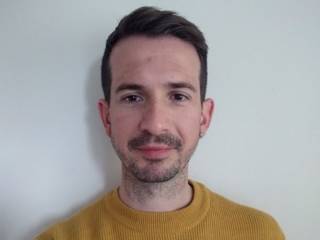Exoplanets and the Ariel Mission - Searching for signatures of life on strange worlds
31 October 2024, 5:30 pm–7:30 pm

The Centre for Planetary Sciences at UCL/Birkbeck is delighted to announce the next event in our Adventures in Planetary Science public engagement series: 'Exoplanets and the Ariel Mission - Searching for signatures of life on strange worlds', taking place online on Thursday 31st October.
This event is free.
Event Information
Open to
- All
Availability
- Yes
Cost
- Free
Organiser
-
Joanna Fabbri, Centre Coordinator and Research Facilitator for the Centre for Planetary Sciences at UCL/Birkbeck
It is estimated that our own Milky Way Galaxy is home to at least 100 billion planets and, with over 5700 detected over the past few decades, these strange new worlds orbiting other stars have become an important and fascinating area of scientific study.
Join us to hear from our exoplanet and astrobiology experts about how we explore these alien planets and what they could reveal about the search for life beyond Earth. Since it's Halloween, we'll also be sharing some details of the many "horrifyingly inhospitable" exoplanets discovered so far!
Dive a little deeper into the bewitching world of exoplanets by putting your questions to the panel during the Q&A following the talks.
We are pleased to confirm our line-up of speakers:
Professor Giovanna Tinetti (University College London)

After a PhD in Theoretical Physics, Giovanna worked at Caltech, NASA's Jet Propulsion Laboratory, the Institute of Astrophysics in Paris and at La Sapienza University of Rome (Fermi Chair). She has authored / co-authored over 250 research publications and has delivered over 300 talks, seminars and public lectures internationally. Select awards include Sir Arthur Clarke Award (2023), Monte-Carlo Prize Women in Science (2022) and Knight of the Order of Merit of the Italian Republic (2020).
Dr Andrew Rushby (Birkbeck, University of London)

Andrew's research at Birkbeck concerns the habitability of small planets outside of our Solar System. He has developed a new postgraduate degree in Astrobiology, which is one of the first of its kind in the UK. Andrew is also a passionate science communicator. He co-hosts the Exocast podcast, which discusses all things related to exoplanetary science and astrobiology.
Alexandra Thompson (UCL)

Being very open about having a chronic illness herself, she is also very passionate about EDI and engaging groups that have historically been under-served by STEM outreach. This year she pioneered the Orbyts STAR project in partnership with Great Ormond Street Hospital where the hospital school students conducted stellar variability monitoring of some of the most notoriously active exoplanet host stars that we plan to observe with Ariel. Outside of research she loves everything climbing and mountain-related.
Dr Gordon Yip (UCL)

Gordon also leads the Ariel Data Challenge, an annual event that engages with the broader machine learning community to help address technical and scientific challenges encountered by the ESA exoplanet space mission.
Hosted and chaired by:
Dr Catherine Regan (West Virginia University)

Catherine completed her PhD at the Mullard Space Science Laboratory, UCL in 2024 where she researched the impact of dust storms on the induced magnetosphere of Mars. During this time, Catherine was heavily involved in public engagement and science communication, chairing a number of working groups and running her own project, Eyes on Mars, inspired by the PanCam instrument on the upcoming Rosalind Franklin Rover. Her outreach work has been recognized by multiple awards. She was recently awarded the IoP Jocelyn Bell Burnell medal for exceptional early-career contributions to physics by a female physicist.
Don't miss out! Register for your free tickets via the 'Book now' button above and discover more about these mysterious worlds.
This will be a virtual event held online with Zoom.
Links
- Giovanna Tinetti's academic profile
- Andrew Rushby's academic profile
- Catherine Regan's academic profile
- Alexandra Thompson's academic profile
- Gordon Yip's academic profile and personal webpage
- Ariel Space Mission website and ESA Ariel factsheet
- Centre for Space Exochemistry Data (CSED) website
- The Ariel Data Challenge
- Exocast - The Exoplanet Podcast (with co-host Dr Andrew Rushby)
- Orbyts Partnering Researchers with Schools website
 Close
Close

